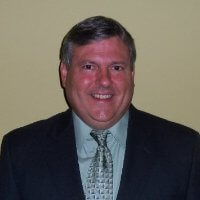In an earlier post, we previewed some of the Big Data presentations which will take place at the upcoming April 26-30 2015 AIChE Spring Meeting here in Austin, Texas. There are several other presentation by Emerson folks I wanted to highlight.
Laurie Ben will be presenting Control System Migration Gone Wild – Best Practices & Lessons Learned and An Introduction to the Early Planning Process for Plant Automation Projects. Here is the migration presentation abstract:
You have configured the new automation system and reviewed the checklist. Now at start up, loops are not performing the way you expected. Valves are cycling, the process appears to be going wild. What did you forget? Where do you start? We will look at real projects were the conversions did not go as planned. We will discuss lessons learned and share field-proven best practices to minimize the risk of this happening on your migration project.Understanding both the legacy and a modern system architectures and control function details are key for successful system migration. Differences of both systems must be fully understood to enable a successful migration to the new platform. Discussions of easily overlooked differences at the base control level is key to provide the required functionality needed for successful start-up.
Here’s the early planning process presentation abstract:
Front End Engineering, FEL1,2, & 3, Feasibility Analysis, Conceptual Engineering, PPP What does it all mean? When do you need to do it? What does it include? How does it affect your automation project?
Introduction to the early planning process involved with capital projects and the impact of early planning on those projects. The focus will be on understanding the terms used, the amount of engineering and cost/benefit as well as risk mitigation information needed as your project moves through the various “management” gates of approval.
While information will be applicable to all capital projects, the focus will be on existing facilities and their automation modernization projects, i.e. brownfield automation projects.
James Beall also will have two presentations, A Tutorial on Model Based Loop Tuning and Impact of Control Valve Performance on Control Performance. Here’s the abstract for the loop tuning tutorial:
This presentation provides a tutorial on tuning PID process controllers using the Lambda process model based tuning methodology. This tuning methodology allows the user to “coordinate” the response of related controllers in order to optimize the process performance rather than simply focusing on individual “optimized controller tuning”. For example, is the process optimized by controlling the process variable (PV) close to the set point with aggressive moves of the controller output, or, is it optimized by allowing the PV to vary from the set point with less movement of the controller output? Either object can be easily met with this tuning methodology. Another application of this tuning methodology is the coordination of cascade loops. How do you know the tuning results in primary controller response being at least 5 -10 times faster than the secondary controller response? These questions are easily answered using the Lambda loop tuning method. The tuning equations will be explained and plant examples will be used to illustrate the concepts and results.
Here is James’ control valve performance presentation abstract:
A significant amount of time is often spent specifying and selecting the proper control valve for the application. However, this effort is generally focused on the physical properties of the valve such as metallurgy, erosion and corrosion specification, shutoff classification, fugitive emissions requirements, actuator type, positioner type, etc. While these aspects are critical to the performance of a control valve, there are other performance metrics that are vital to the good performance the control loop that manipulates the control valve. These include such metrics such as dead band, resolution, travel gain and step response time. Often poor performance in these areas can significantly reduce the performance of the control loop, sometimes even preventing operation in the automatic mode. The definition and importance of these valve performance metrics will be explained and field examples will be provided.
And, last but not least, Gary Hawkins has two presentations, Instrument Problem or Process Problem? That Is the Question… and I’d like the Answer Now! and Risk Analysis of Wired Versus Wireless Transmission of Process Measurements. Here is the instrument/process problem abstract:
Instrument Problem or Process Problem? That is the question… and I’d like the answer now! This session will explore a variety of issues with process measurement and control in the process industries – from the transmitters and installation to the controllers to the control valves. From the common issues to the less well known. The key to profitability in the process industries like oil refining and petrochemicals is on-stream availability. This session is intended for both those new to process automation and the old-timers to come share their experiences.
Here is the abstract for Gary’s wired vs. wireless risk analysis presentation:
There is no doubt that wireless technology lowers the cost barriers to remote assessment of equipment condition. As such, wireless technology is relied upon for more and more functionality in the process industries. We are seeing interest in the application of wireless devices in functions typically devoted to wired applications. This session will explore some fundamental questions for consideration when evaluating transmission methods of measurements. The tools for risk analysis of safety systems will be utilized to analyze potential faults versus the benefits for wired and wireless networks of process measurements.
Check out the full list of presenters to see what a remarkable gathering of experts the AIChE has pulled together. I hope to recap several of these presentations above in future blog posts.
You can also connect and interact with other process control and instrumentation experts in the Improve & Modernize, DeltaV and Wireless groups in the Emerson Exchange 365 community.







